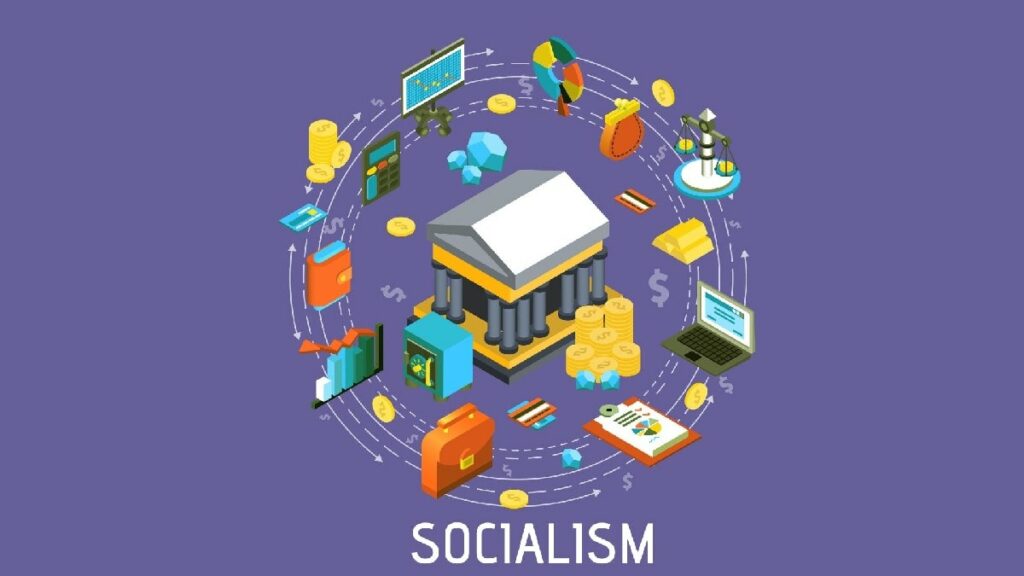Take this Are You A Socialist Quiz to find out. We update the quiz regularly and it’s the most accurate among the other quizzes.
Socialism is a political and economic system in which society owns both distribution and production. This is in contrast to capitalism, which encourages individual ownership of the means of production.
Land, factories, raw materials, machinery, and all other items required to manufacture a final product are included in the concept of means of production. This social ownership can take the form of a public collection or even a cooperative. There are numerous definitions of socialism, and no single term contains all of its characteristics. Market and nonmarket socialist systems are the most common types of socialist systems.
In the case of non-market socialism, it entails the substitution of technical criteria and engineering for factor markets and money, which is based on a calculation that results in the production of an economic mechanism that is very different from the economic rules of capitalism. Non-market socialism avoids the problems and drawbacks connected with capital accumulation.
Market socialism, on the other hand, employs monetary pricing in factor markets. In some circumstances, profit motives are used by market socialism for socialist companies as well as capital goods allocation. There have been internationalists, nationalists, and socialists.
By the end of the nineteenth century, with the writings of Karl Marx and Friedrich Engels, Marx’s collaborator, socialism had come to represent a strong resistance to capitalism. It was aiming towards a post-capitalist regime in which there would be some social ownership of the means of production. During this period, the Soviet Union emerged as the world’s first socialist state. Also, you must try to play this Are You A Socialist Quiz.
Are You A Socialist Quiz
Today, socialism has expanded to include causes other than socialism, such as feminism, environmentalism, and progressivism.
The government owns everything.
One of the major characteristics of a socialist economy is that all manufacturing facilities are owned by the state. Along with manufacturing, public ownership includes distribution. In a socialist economy, all forms of industries, mines, distribution agencies, and financial agencies, as well as transportation and communication, are managed and owned by the state or government departments, as the case may be.
It is a frequent fallacy that there is no private sector in a socialist economy, but there is always a modest private sector, which may exist in the form of business units carried out in small sectors of society such as villages and are owned and controlled by daily wage earners such as local artisans. Their private-sector earnings are solely for domestic consumption.
Self-management of the economy
A decentralized or self-managed economy is built on three factors: decision making, decentralized mechanisms of resource distribution, and autonomous self-regulating economic entities. This approach has been advocated by several economists, including Alfred Marshall and John Stuart Mill. The self-managed economy comes in many forms, including but not limited to labor-managed firms and worker-managed factories.
The fundamental purpose of self-management is to prevent or eliminate worker exploitation and alienation in the workplace and in the office. Guild socialism, which started in the United Kingdom, is a movement that promotes worker control over industry through trade-related guilds.
About the quiz
Centralized Organizational Planning
The central planning authority is in charge of the planning and operation of the socialist economy. These centrally planned economies offer benefits over market economies in which central authorities make typical business and consumer decisions. State-owned firms are frequently the ones who make decisions about the production of goods and services, as well as their supplies.
The government establishes these businesses and engages in commercial activity on its behalf. Because bureaucrats occasionally control all pricing, these are sometimes known as command economies. The central planning authority fails to meet many objectives and targets that were to be met throughout the specified time frame.
Socialism in Politics
Few politicians use the term “socialist” to refer to people who do not identify as socialists, as well as policies that do not fall under the umbrella of socialism. There are, nevertheless, a few common characteristics among the various definitions of socialism. Low wages, poverty and its causes, unemployment, and social and economic inequality are among these elements.
A universal control over an exchange means of production, and distribution is a common answer to these challenges. Anarchism holds that society should be self-governing. According to anarchist principles, the state is an unneeded and undesirable entity.
For more personality and trivia quizzes check this: Are You Rich Quiz




